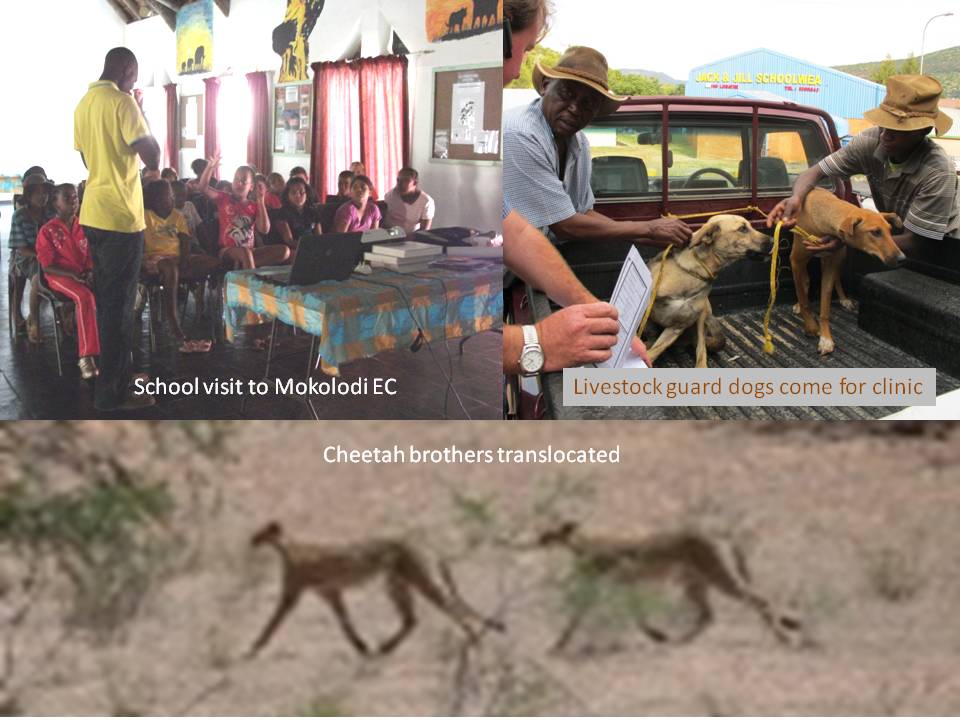CCB facilitated at the Department of Wildlife’s Environmental Teacher Training workshop for Southern district teachers. 50 participants undertook the environmental training day and CCB provided information on different predators, their conservation status and methods to facilitate coexistence. Teachers were provided with school books, posters and resource activity guides.
Again in collaboration with the Department of Wildlife, CCB held an awareness raising stall at the week long outreach event for the Ramotswa region settlements. Displays, talks and activities focused on environmental conservation and ended with a 1 day workshop specifically for farmers to learn how to reduce predator livestock conflict. This was well attended by 40 farmers from the region.
A veterinary clinic took place in Lobatse in Southern Botswana for members of the CCB Livestock Guarding Dog Network. 4 livestock guarding dogs were sterilized and vaccinated. The owners were extremely pleased with the service provided by CCB to assist farmers in Botswana to effectively utilise this effective conflict mitigation tool.
As for cheetahs! CCB was alerted by the Department of Wildlife that 2 cheetah brothers had been captured by a farmer in the Molopo farming district of Southern Botswana. They had been taking smallstock and the farmer was no longer willing to have them remain on his land. The brothers were relocated off the farm by the Wildlife Officers and CCB provided a satellite collar to monitor their movements and response to translocation. They were released in the Kgalagadi Transfrontier Park in Western Botswana. This is part of an ongoing study by CCB to assess the success of translocation as a conservation tool. The aim is to demonstrate that translocation is not the ideal solution as animals often return to their origins or come into conflict with resident populations of predators. It is a far preferable long term solution to improve livestock management practices so predators have less opportunity to predate upon unprotected livestock.


 RSS Feed
RSS Feed
